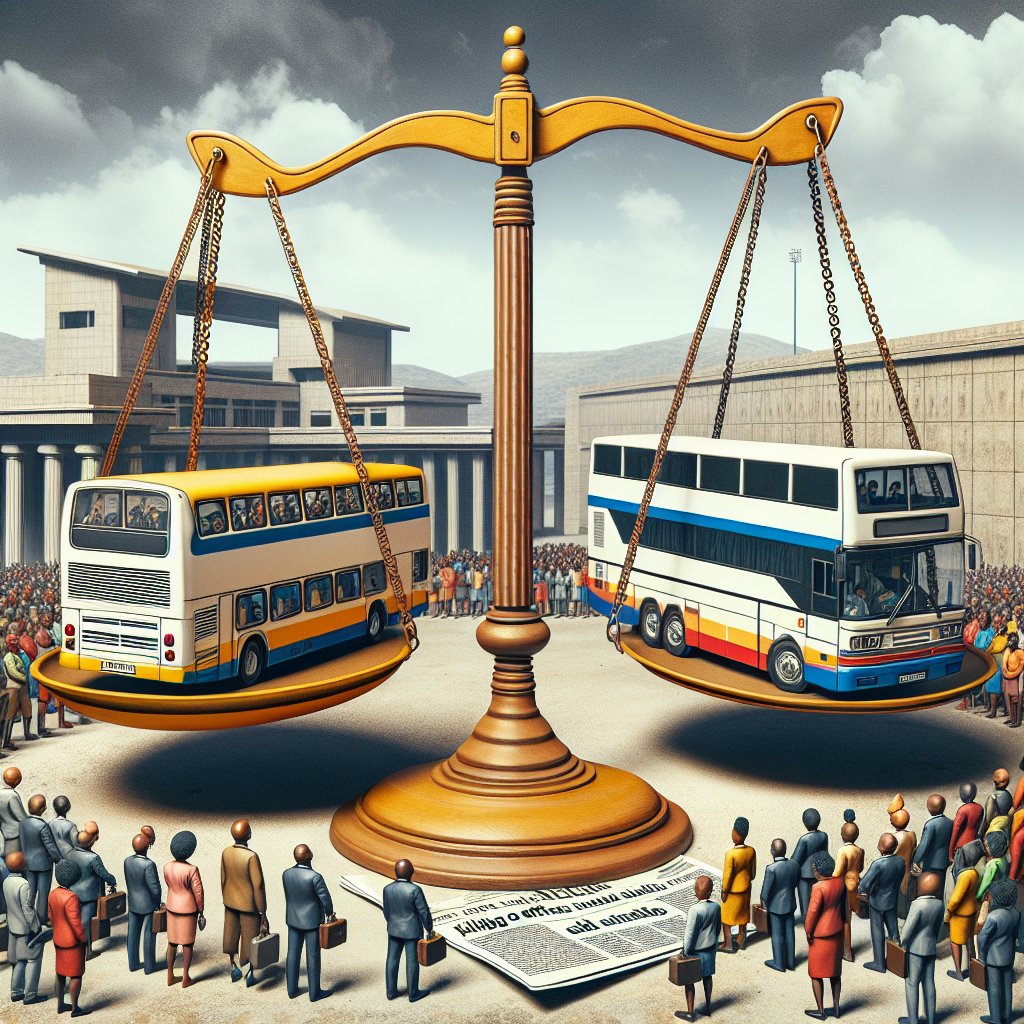Content created by AI
South African Police Chiefs Held in Contempt for Failing to Protect Intercape Buses
In a significant development highlighting institutional accountability, the national police commissioner, along with the Eastern Cape provincial police commissioner, have been judicially sanctioned for their dereliction of duty in safeguarding Intercape bus services. Amid a backdrop of escalating threats to passenger security, Intercape has pursued legal action, mandating the South African Police Service (SAPS) to enact protections as per prior court rulings. These legal battles accentuate the broader issue of enforcing the constitutional rights of transit passengers and employees.
Intercape, a prominent long-distance bus operator, has been enmeshed in a protracted legal skirmish with state authorities. The company alleges negligence by SAPS in abiding by court injunctions designed to bolster security measures for its passenger services. This litigation underscores the potential perils commuters and Intercape employees face, and their legal endeavors signal a pushback against state complacency.
Despite previous court directives, the SAPS has been sluggish to initiate stipulated safeguards, prompting Intercape to persistently seek judicial intervention. The upshot of this confrontation is a contempt of court ruling, a chastisement illustrating the gravity of the SAPS's inaction, which arguably emboldens potential aggressors while undermining the rule of law.
Authorities' intransigence not only poses practical risks but also risks eroding public trust in law enforcement's capacity and willingness to protect citizens. The failure to comply with legal mandates draws attention to systemic enforcement shortcomings within the South African criminal justice framework, eliciting anxieties over institutional efficacy.
Intercape's travails reflect broader societal concerns about safety, particularly within South Africa's public transport sector—a vital artery for the nation's mobility. The implications of these security lapses transcend immediate stakeholders, affecting commuting workers, tourists, and the public's overall sense of safety.
The legal ramifications for the national and provincial commissioners are symbolic of holding high-ranking officials accountable, suggesting that even those at the top rungs of law enforcement are not immune to the consequences of inaction. By setting a precedent for accountability, this ruling could pave the way for a renewed emphasis on law enforcement responsibilities across South Africa.
The broader public discourse this case ignites may encourage other businesses and citizens to assert their rights when confronted with public safety oversight. This judicial outcome may serve as a watershed moment for public safety and enforcement accountability in South African law enforcement.
Law enforcement's response moving forward will be closely scrutinized. All eyes will be on SAPS as they navigate the repercussions of this judgment and their forthcoming strategy to conform to court orders. For Intercape, and indeed for all those reliant on public transportation, this moment serves as a legitimization of their grievances and an affirmation that the protection of fundamental rights remains a cornerstone of South African jurisprudence.







